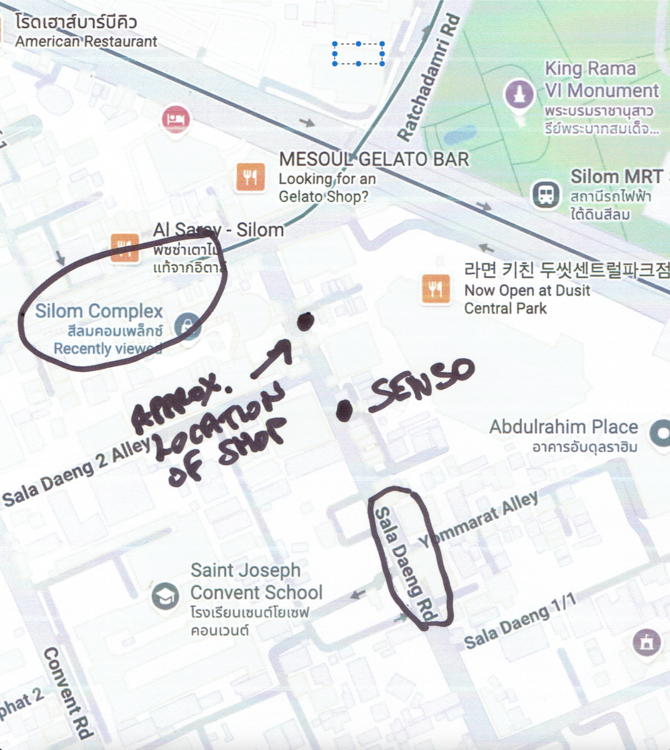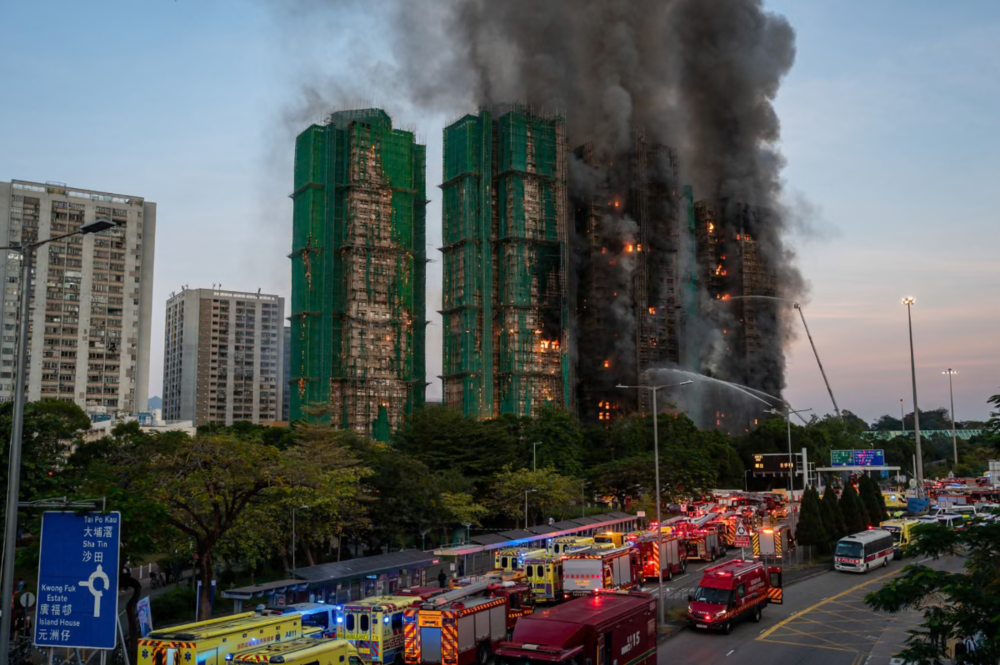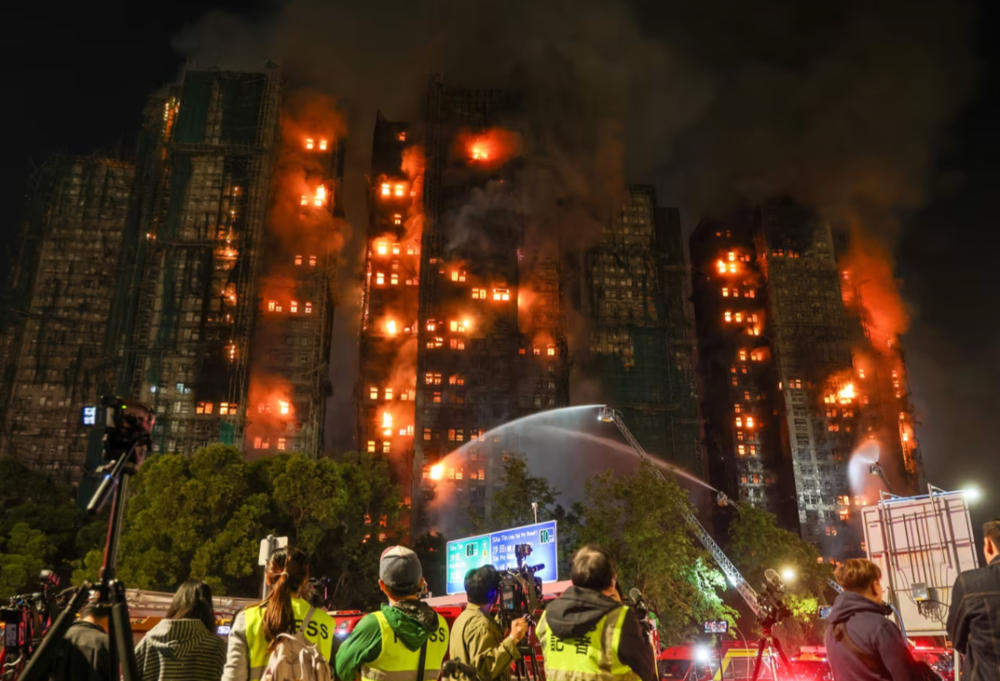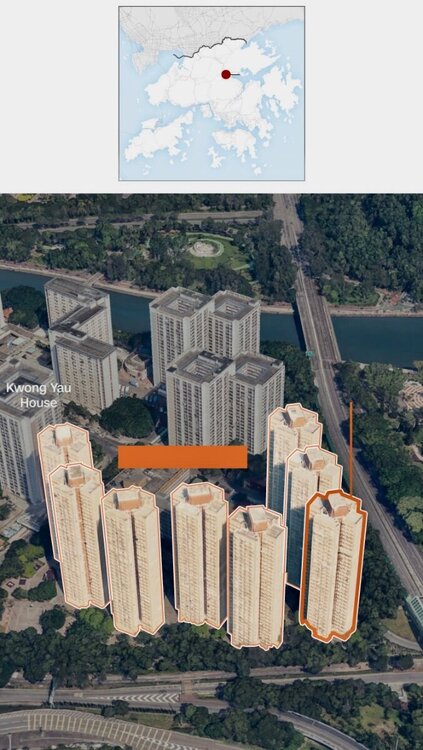
PeterRS
Members-
Posts
6,906 -
Joined
-
Last visited
-
Days Won
403
Content Type
Profiles
Forums
Events
Everything posted by PeterRS
-
The average elevation of Hat Yai is 47 meters. But that no doubt means some parts are closer to sea level. On the other hand, few cities anywhere can withstand 335 mms of rain in a single day, the more so when it comes on top of continuous rain over several previous days when the ground was already saturated. Total rainfall over the three days culminating in the worst rainfall amounted to 630mm (25 inches). Water flowing down from nearby saturated hills made everything worse. Even in Bangkok drainage in certain parts of the city cannot handle anything that amount of rainfall. It would result in major flooding. 33,000 homes, 5 hospitals, 58 schools and 700 kms of road have been damaged according to Reuters. https://www.reuters.com/business/environment/weve-lost-everything-how-floods-devastated-one-thailands-largest-cities-2025-11-28/#:~:text="It was all caused by,years%2C resulting in catastrophic floods.
-
As all reports have indicated, with Hong Kong having so many skyscrapers mostly in very densely populated areas, Hong Kong has some of the toughest building codes in the world. Your post should have been directed at contractors who deliberately (I assume) decided to cut corners by not following the codes. Why do you think 11 senior staff from the contractors and their consultants have now been arrested and some likely to be charged with manslaughter? Since you know so much about building codes and Hong Kong, have they changed since the Chinese assumed control of Hong Kong in 1997?
-
Always difficult to believe what one picks up from the media, but the facebook comments addressed in @mauRICE's post about the raided venue having been open "for the past eight months" certainly do not fit with Otot Otot which has been open in that same location at the end of the row of shop fronts for 30 years. I wonder if those African biggot preachers have only recently appeared in KL and made life difficult for those visiting Otot Otot, if indeed it was that sauna. But I still believe it must have undergone considerable expansion as even with 100 in the space I last visited it would have been almost packed. And not only the sauna's own website but visitor reviews mention nothing about its having a swmming pool, for the simple reason it doesn't have one. Facebook has an entry 21 hours ago from someone who says the raided sauna has been raided several times before and always reopens. I have never heard of previous raids at Otot Otot. I wonder if @mauRICE has as he is closer to the 'action' there.
-
And what on earth has that to do with the discussion. Absolutely nothing! My first home for 11 years was on the 25th floor of a complex of 44 skyscrapers named Baguio Villa on the Island's west coast all completed by 1981. For your information the governor at that time was the excellent and much admired Sir Murray MacLehose. I suspect the building codes were much the same as in the early 1980s.
-
In the midst of this horrific tragedy it is heartwarmng to see so many people turning up to help in some way. A large community effort has been mobilised to help firefighters and other first responders as well as those with no homes. Separate supply stations for food, clothes and household goods have been set up in a square not far from the tower blocks. So much has been donated that calls have been put out on social media for no more donations for the time being. As one city councillor said, such communiy efforts have become a well oiled machine, ironically as a result of the weeks and months of protests in 2014 and 2019.
-
I am one of the original members of Otot Otot sauna from the time in the early to mid 1990s when I would often fly to KL for long week-ends with friends. I have never heard of its being raided before. From the Straits Times I see that 201 people were detained. Frankly I can not believe Otot Otot can accommodate such a large number unless it has been very substantially expanded since I last visited about 7 years ago. Another reason for thinking it must have been another place is that the raided venue opened from 5:00 pm until late. I always thought Otot Otot opened earlier in the afternoon. Further, the article states that the venue had been under surveillance for two weeks following public complaints. Personally I cannot believe that Otot Otot had suddently had complaints after being in business for 30 years! In any case, the article adds it had only been open for "the past eight months". Lastly, the report states the venue had a swimming pool. There has never been one at Otot Otot to my knowledge. So it must have been somewhere else. Yes, technically they are illegal as Malaysia is a Muslim country. But it has a lot of laws that are only for Muslim citizens and roughly 23% of citizens are Chinese. I have never had any issue on the apps, for example, finding Chinese gay guys. Also in Penang I have been in massage spas where the masseurs were all from mainland China and extra services were available. I have always found KL cruisy. https://www.straitstimes.com/asia/se-asia/caught-with-their-pants-down-prosecutor-surgeon-among-201-detained-at-men-only-vice-raid-in-kl
-
Have you ever followed someone, to watch him get increasingly successful?
PeterRS replied to unicorn's topic in The Beer Bar
Not quite the same. Decades ago I once met a young man at a party. He was cute and said he was a singer. I checked and found that he was on the 2nd or 3rd rung of success. I invited him for dinner one evening, he came and then we repaired to my apartment. He came round a few times after that but the chemistry was not great. Many years later after he had become one of Hong Kong's top stars, I bumped into him near the city centre. I was surprised he recognised me, but we chatted and then went to a coffee shop. I knew by that stage that he had come 'out' as gay but still had a very lage following. But that was the last time I saw him in Hong Kong. I did once, though, see him when he was part of the entertainment at the end of the Taipei Gay Pride Parade. -
Is Great Art Worth The Price?
PeterRS replied to PeterRS's topic in Theater, Movies, Art and Literature
Faberge Eggs are once again in the news, but only because one of three known to be in private hands is coming up for auction. The exquisite Winter Egg was a gift from the Tsar in 1913. Made from clear quartz, a very notoriously material to carve I believe, like all Faberge's eggs it has something inside - in this case a hanging basket with wood anemones, usually the first of the Spring flowers to bloom after Russia's winters. One expert has claimed the Winter Egg is the greatest of all the 50 made by Faberge's workshops for the Tsars. Like many of Russia's treasures, the Winter Egg was sold off after the Revolution for £450 - approx. US$30,000 in today's money. In 2002 it was sold by Christie's for $9.6 million. The estimate of what it will fetch at Christie's Tuesday auction is $25 million. But that is likely to be low compared to what it will really fetch. In the art market, scarcity is all. https://edition.cnn.com/2025/11/27/style/faberges-winter-egg-christies-auction -
Two other issues concern me. The passages within each tower block were narrow. One or two people with difficulty moving could hold up untold others. The second is that when some felt the fire - apparently it is now known that none of the fire alarms were working - they immeditely took the lifts to safety. With fire of such intensity, the chance of electricity failing is very high. The last place I'd want to get stuck in would be a lift between floors. When I lived in Hong Kong for 20 years, I was in two high rise blocks - the first 25 floors up, the second 34 floors up. Views were naturally spectacular. With 4 and 8 apartments per floor respectively, there were two quite generously sized stair exits per floor all well located in the heart of the buildings. But as these were privately constructed high rises, they were not low cost like those in Wang Fuk Court, and so not many older people - at least that I was aware of. When I stay in an hotel, the first thing I do is check the location of the fire stairs and count the number of doors I'll need to pass till I reach them. Once I was involved in a three-day event in Hong Kong's Ritz Carlton hotel located at the top of the tallest building and my room was on floor 117. I rather hoped they had parachutes in each room! Here in Bangkok I live on the top floor of an eight-story building. There are smoke detectors in each unit and fire hoses and extingiushers on each floor but no sprinkler system. The main open staircase is wide but a perfect funnel for fire. When I moved in, a second staircase at the back did not even have doors. I led a campaign to convert those stairs into a fire escape. Now we have occasional fire drills and biennial demonstrations from the fire department on how to use the fire prevention equipment. Now it feels a lot safer.
-
Senso is one of the best known gay massage spas in Bangkok. Saladaeng is very close to Saladaeng Skytrain (BTS) station. Get off at the Silom Complex exit at the back left of the train, go down to street level, do a U-turn and walk up 100 meters or so to Saladaeng. Turn right into Saladaeng, stay on the left of that soi, immediately after the first small soi opening on your left there is a dingy looking shop. That's the one. Very easy if you are in the Silom area. This map might help.
-
I said in my earlier post that I have mine done is a small shop on Saladaeng. It's on I think the first corner on the same side as Senso and probably around 50 meters or so prior to Senso. Cost earlier this year was I think Bt. 4.
-
According to an article on today's CNN site, a prisoner due to be executed by firing squad in Utah in September, had his death delayed because the prisoner was suffering from dementia. A new "competency hearing" had been set for December but the prisoner died two days ago. I am against the death penalty, but primarily because there have been too many cases where it was subsequently proved that the murdered prisoner was in fact innocent. I agree that number is very small, but I cannot accept any state has the right to end a person's life without cast-iron proof - and that is near impossible to obtain in most cases. Even confessions are no guarantee of guilt. Apologies and monetary payment are no substitute for wrongly taking a life. In this most recent case, there is another issue. The prisoner had been on death row for a staggering 37 years! That is more than double the average of 18 years which death row prisoners have to wait prior to execution. I find this utterly absurd. The mental pain and anxiety anyone must go through having to wait 37 - or even just 18 - years knowing that at some time in the future you are going to die must be ghastly. I admit some of the crimes allegedly committed were probably even more ghastly, but in my view that is no reason for the state to punish a condemned person effectively twice. https://edition.cnn.com/2025/11/27/us/menzies-utah-dementia-inmate-dies
-
This seems rather like a post I made some months ago about the online stripchat site. Quite recently a number of Chinese have appeared on the site, many in groups of three or four, all very young, very skinny and play rather silly games before eventually stripping off. They get much higher tips than almost all the westerners. Solo Chinese are also becoming common. A couple of days ago, my bf asked me to look at the screen. It was the page of a young 20ish Chinese who got from the same viewer two 'donations' of 2,200 tokens. He ended up that session with a masturbation show and 5,100 tokens. I understand from the web that 'models' on stripchat earn 5 US cents per token. By my reckoning he earned $255 for about four hours 'work'. Yet most young western models spend longer online and are lucky to end up with between 100 and 200 tokens. So clearly there are some in some countries very hppy to pay way over the odds for whatever tickles their fancy!
-
Rainfall in the south of Thailand is far from uncommon even into the middle of December. I recall a 5 night stay in Phuket in mid-December 1996 when it poured with rain every day.
-
Being here on a long term visa, my answer is simple. I take a photo of my passport details page and another of the visa. I cut to size, back one to another and then have it laminated. I always carry that in my backpack or back pocket. There are shops offering lamination all over the place, even one on Saladaeng just before you come to Senso. I realise this is less easy for those here on short trips visa free. Then it is the arrival stamp the police are interested in. So just a quick photo copy of that and the details page should suffice. No need to risk losing your passport and it saves a trip to a police station if for any reason they ask for it.
-
A real probem for this complex is that it housed mostly elderly people. The largest age grouping was those aged 65 and above. CNN has reported that of recent buyers, the youngest was in their 60s. It was one of the government's low cost housing complexs of which there are many in Hong Kong. Private rentals are so high that a broom cupbord in the city centre is basically unaffordable for most. Government public housing is sold at very substantial discounts resulting in long waiting lists. Residents of Wang Fuk Court became concerned about the cladding and fireproofing over a year ago when they started writing to the government about it. Between July 2024 and November 20 2025 the Labour Department had carred out 16 safety checks, the latest reminding the contractors of the need for fireproofing of materials. The death toll is now 94 with that total expected to rise to several hundred. https://edition.cnn.com/2025/11/27/asia/hong-kong-fire-survivors-questions-intl-hnk
-
The fires have now been brought under control in all but one of the towers. The death toll has now risen to 65 with nearly 300 still unaccounted for. Fear remains for those on the upper floors who would have had no means of escape in the burning heat. The fireman who died had been overcome by smoke after entering a building to look for survivors. Locally, the sentiment has changed from one of horror to anger., How did this happen and how were fire alrams not heard, if indeed they went off? There is some concern about a possible building collapse but this is regarded as remote. Major corporations in Hong Kong and mainland China have been quick to make donations to help those who have lost so much. Jack Ma and his Alibaba Group have pledged almost US$7 million, other Chinese companies $1.25 million each. A Hong Kong consortium of companies has already pledged $12.5 million. Photo: Yan Zhao/AFP/Getty Images
-
My view, and it is only my view but based on what others have written here, is that any visit to Saranrom for cruising is now a waste of time. It is after all quite far from the centre and, again according to others, if there is activity there it starts quite late. One post mentioned 10:00 pm. I doubt if translation apps will be much use. There's plenty of cruising elsewhere in Bangkok and clearly a lot of activity on the apps. Just keep your gaydar working.
-
@ChristianPFC should give us an update on Saranrom. But please note it has been stated in several previous posts about Saranrom that the boys there do not speak English. So if you do not speak some Thai you are likely to have a problem. You also have to work out the local hotel and cost of room etc. With the fee being so low, I doubt if they would consider going to your hotel. As I understand it (and of course I may be wrong) they go to a local hotel in that area.
-
I am surprised that @ChristianPFC still visits the Saranrom area. Back in 2017 there was correspondence on this Board about Saranrom. One guest member said that @ChristianPFC had once been threatened with a knife there. @ChristianPFC pointed out that the poster had got it wrong, but there had been some form of altercation. He wrote on August 25 2017 - "I never had an encounter that involved a knife, or other weapon. That incident in Saranrom was bare hands/feet first, and later he picked up a piece of wood (?), that's when I decided to take the next taxi to get away." As was stated then, Saranrom was/is primarily a place for older Thais to meet younger Thais. Foreigners rarely visit now. As I said earlier AYOR.
-
You should go to Japan. I remember the first time I had fried green tea ice cream - or I suppose I should say tempura ice cream. It was delicious.
-
For a city that has some of the most crowded parts of our planet housed in a vast number of high rise buildings, major fires in Hong Kong have been relatively uncommon. Yesterday afternoon, though, a massive one broke out spread out over seven tower blocks in the Tai Po district not far from the China border. 44 have been killed including one fireman and 279 remain unaccounted for. Many remain trapped in the upper floors which firemen are having difficulty reaching due to the intense heat at that level. With air-conditioning units having melted and no power, those on the upper levels still alive must be going through absolute hell. Photo: Getty Images Just after 7:00 am today Thai time the blaze had been raging for 16 hours and was still not under control. It is believed to be Hong Kong's deadliest fire since World War II. The cause of the blaze has not yet been identified. But experts have been saying it was made worse by the bamboo scaffoding surrounding the tower blocks which were having exterior renovation. Another has been inflammable polystyrene boards that have been covering many of the windows and which did not meet fire safety standards. Bamboo scaffolding is universal in Hong Kong and has been in use in mainland China for centuries. Two directors of the construction company and one of its consultants have already been arrested on suspicion of manslaughter. Location of the tower blocks Photo from CNN website https://edition.cnn.com/world/live-news/hong-kong-tai-po-buildings-fire-11-26-25
-
Is Saranrom still in existence as a cruising place? I know it was years ago and the price then was Bt. 500. I also know it could be dangerous as shown in a vdo posted on this Board around that time. If it is still on the go, how has the price remained unchanged for around a couple of decades? Have you recently taken someone off from there? About 15 years ago I once went with a friend in his car (I don't drive in Thailand) around 9:00 pm on a Sunday evening. There were then no more than half a dozen Thais hanging around. As the old Spartcus Guide would have added, definitely AYOR.
-
That vdo is absolutely horrible. My heart goes out to all whose homes have been flooded and familes who have lost loved ones. I have a Thai friend whose home was flooded for 3 months during the massive flooding in parts of Bangkok in 2011. It took weeks afterwards to render his ground floor habitable again. 13.6 million people were affected by those floods.







